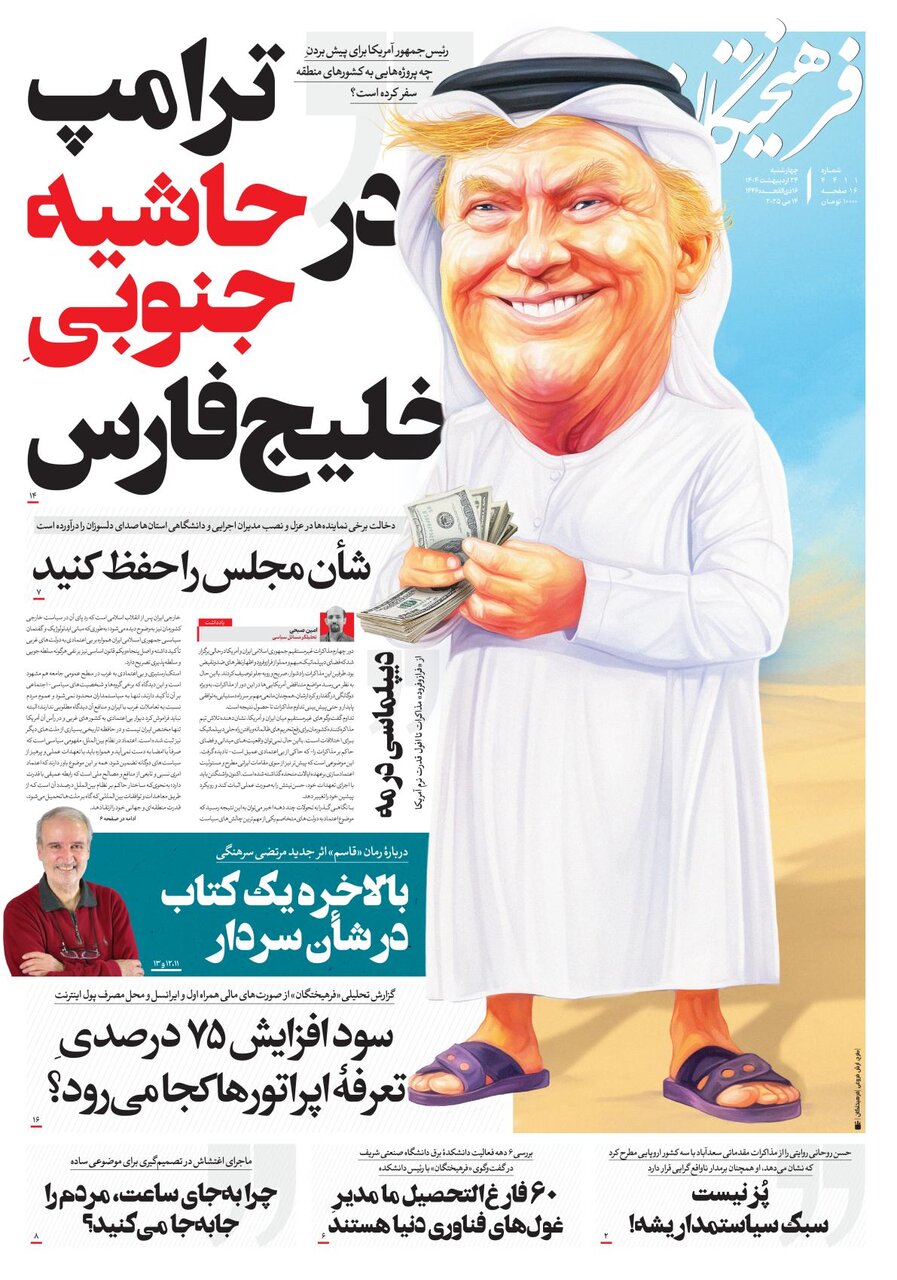Joint nuclear cooperation fills the gap in the JCPOA

TEHRAN - In an interview with Seyyed Sajjad Tabatabaei, Farhikhtegan discussed Iran’s purported proposal to form a joint nuclear consortium with the Persian Gulf countries.
He said: One of Iran’s proposals at the negotiating table to prove the peaceful nature of its nuclear program is to form a joint nuclear consortium with the Persian Gulf Arab countries, meaning that some of these countries would supervise the uranium enrichment process on Iranian soil. The main goal is to create trust over Iran’s nuclear program, strengthen friendship between Iran and regional Arab countries, create a ground for common interests, and pave the way for close economic and political cooperation. When the JCPOA was signed, some Arab countries found themselves sidelined and played destructive roles to kill the agreement. In some cases, they even considered the JCPOA a threat to their interests. Now, the new idea seeks to prevent any excuses and create a common interest with regional Arab countries.
Shargh: Why is the European trio threatening to activate snapback mechanism?
Shargh analyzed a threat by the European troika to activate the snapback mechanism, which would return the UN Security Council sanctions against Iran. It wrote: Araghchi's warning to the European troika indicates the sensitivity of the current moment in Iran-Europe relations. While negotiations between Tehran and Washington are underway, the troika is playing a dangerous diplomatic game by threatening to activate the snapback mechanism. Perhaps, from one point of view, Washington is seeking to divide tasks with Europe or the White House is not reluctant to intensify pressure on Tehran by keeping the lever of the snapback mechanism in Europe's hands. This approach could lead to the collapse of the JCPOA and an escalation of regional tensions. The future of Iran-Europe relations and even stability in the region are dependent on the decisions at this critical moment. Europe faces several challenges in this diplomatic game. First, the risk of diplomatic isolation if Russia and China oppose activating the snapback mechanism. Second, the weakening of Europe's position in the nuclear negotiations, because activating the snapback could force Iran to change the nature of its nuclear program, as Araghchi had previously warned.
Arman-e-Melli: Trump in the Middle East
Arman-e-Melli analyzed Trump's trip to the Middle East and wrote: Many Middle East analysts believe that Trump's travel to the Middle East is not unrelated to the process of Tehran-Washington negotiations. This is while other issues, such as regional security, energy, defense, and economic cooperation, are at the top of Trump's agenda in meetings with the leaders of Saudi Arabia and other Persian Gulf countries. The White House has shown that, given the rapid international developments, it is trying to strengthen its strategic cooperation with its partners in the region. Some rumors indicate that the U.S. president will propose plans to end the Gaza war during this trip. The White House's actions in this context could include the formation of an interim government and new security arrangements for Gaza after the war, paving the way for the resumption of normalization talks. The U.S. president had a secret meeting with Israel's strategic minister to discuss the Gaza war and nuclear talks with Iran. Given the ongoing negotiations with Iran and the huge contracts in the Middle East, it seems that we should wait for the end of the Gaza war.
Donya-e-Eqtesad: Both countries want an agreement
Donya-e-Eqtesad devoted its editorial to the desire of Iran and the U.S. for an agreement and the obstacles ahead. The paper said: It seems that two driving forces in both Iran and the U.S. are pushing the two sides towards negotiations and an agreement. On the U.S. side, the main issue is containing China, and on the Iranian side, the economic crisis. When the two driving forces move the sides towards an agreement, the possibility of an agreement increases. Of course, the U.S. will want an agreement that allows American companies to invest in profitable sectors in Iran. Some forces are interested in preventing an agreement between Iran and the U.S. The first and most important opposition force is Israel and the Israeli lobbies, along with extremists and warmongers inside the United States. In Iran, extremists and those who benefit from the sanctions are also not interested in seeing the negotiations come to fruition. But if an agreement is reached, Iran must be prepared to engage with the world and investors interested in investing in Iran. Therefore, as the negotiations progress and possible results are achieved, plans must be made to create the capacity to attract investors.
Leave a Comment